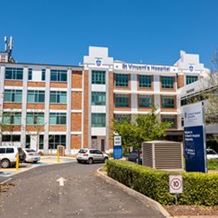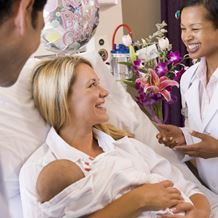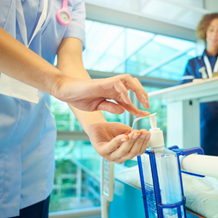Patient resources Paediatrics
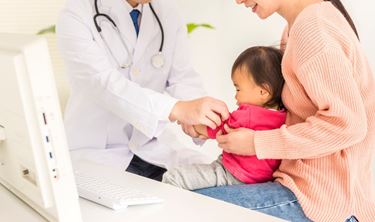
Important information for all patients
Please read prior to admission
PDF file for download/print
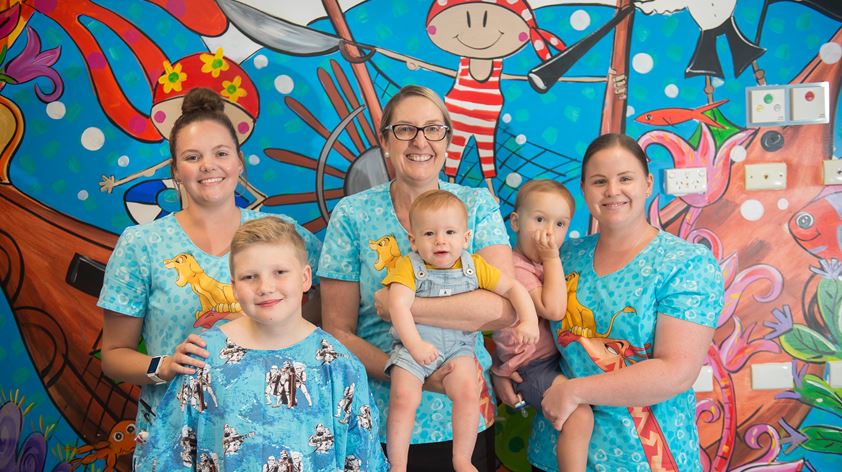
Thank you for choosing St Vincent’s Private Hospital Toowoomba for your child’s hospital admission.
Should your child be required to stay in our care overnight we ask that only one parent stays with the child. A chair that folds out into a bed will be provided so you can stay by your child’s bedside, and a light breakfast of juice and toast will be provided. Sandwiches for lunch and a hot meal for dinner will also be provided. Please let staff know on admission if you have any dietary requirements.
Tips to help prepare your child for their hospital stay:
- Being admitted to hospital can often be a frightening and stressful experience for children and their parents. If children are prepared for admission they often cope better during their stay, so be honest with them and tell them why they are going into hospital. Ask your child if they have any questions. If you are unable to answer these questions, ask your doctor. The level of preparation you provide to your child will depend on their age and level of understanding.
- Fasting instructions will be given to you before your child’s admission. Fasting means they are not allowed to consume anything - this includes food and drink of any kind including chewing gum. It is very important to adhere to these instructions. Often it is easier for your child if you or your family do not consume food and drink in front of them while they are fasting. We ask that you remove all nail polish and leave any jewellery at home for safekeeping.
- St Gabriel’s is a secure ward, so you will need a swipe card to enter the ward at all times. This will be given to you by nursing staff on admission. We keep our doors locked so we can keep our little people safe at all times.
- We also ask that, for safety reasons, you do not bring ANY hot drinks into the ward.
What to bring to hospital:
- Any prescription and non prescription medications (in their original packaging) that your child is taking.
- A list of these medications detailing the dose and frequency for each.
- Equipment your child may be using at the time (ie. mobility (crutches, wheelchair etc), feeding or medical equipment your child requires).
- Formula, bottles or feeding equipment if your child requires a special type. Disposable bottles are provided.
- Any relevant radiology (i.e. x-rays, scans or pathology results).
- A favourite toy, comforter or dummy.
- Clean pyjamas (if long sleeves are required, stretchy is best).
If your child needs to stay overnight:
- Comfortable, front buttoning, clothing (if long sleeves are required, stretchy is best).
- Toiletries, toothbrush and toothpaste.
- Leave valuables at home as we cannot ensure their safety.
- Our priority is the safety of your child while they are in hospital.
- We ask that only one parent stays overnight by the bedside. If you have two children in our care at the same time, both parents are welcome to stay. We ask that if you have other children, please make alternative arrangements for their care.
Day of procedure
On arrival to the ward:
Nursing staff will complete an assessment of your child. Observations including temperature, pulse rate, respiratory rate, oxygen saturation and blood pressure, will be done. Your child will be weighed and any relevant medical/surgical history noted. Your child will wear an identification band for the duration of their stay. It is essential that this band is not removed until your child is discharged. This band identifies your child, particularly for medication administration. A hospital gown and dressing gown is provided for your child to wear to the operating theatre. Nursing staff will discuss important information with you and orientate you to the ward.
Going to theatre:
Nursing staff will accompany you and your child to the operating theatre waiting room where another series of checks will take place. We encourage one parent/guardian to accompany the child into the operating theatre and stay with your child until their anaesthetic is administered. You will then be directed back to the waiting room by theatre staff.
Post procedure - in recovery:
If your child is upset when they wake from their anaesthetic, staff will call you into recovery to help settle your child. You then return to St Gabriel’s once the initial recovery period is over. Once your child returns from the operating theatre and is well recovered they can change into their own pyjamas.
Back in the ward:
On returning to the ward after their procedure, your child will be sleepy and will need to rest. Post-operative observations will commence. If your child is distressed you are welcome to comfort and cuddle them. If they return with an intravenous cannula (or drip) inserted in their hand or elbow, this is to remain in place until staff remove it. Nursing staff will re-strap and place a small padded splint under the affected limb so it remains secure and comfortable.
Nursing staff will offer your child clear fluids when they have assessed that they are safely recovered to do so. This is usually 30 minutes post procedure. If they have tolerated clear fluids, nursing staff will let you know when they are able to eat.
Depending on the procedure your child has had, nursing staff will advise you of an approximate discharge time. You will also be given information on how to care for your child when you arrive home and any medications they require.
Visiting hours
Visitors are welcome between 8.00am and 8.00pm. We suggest you limit the number of visitors. All children visiting must be supervised by an adult at all times.
Hospital discharge
Discharge time will vary for all children. There are certain criteria that your child will need to meet before they can be discharged. Nursing staff will advise you of this post procedure. You may or may not see your doctor prior to discharge.
Looking after yourself
Remember to take breaks and look after yourself. This will ensure you are better equipped to provide care and support for your child. A hospital admission can cause just as much, if not more stress for parents or carers than for the child.
Please ask questions if you are unsure of any aspect of your child’s care. We suggest writing down questions as they come to mind so that nothing is forgotten.
Once your child is discharged from hospital they will take some time to be back to their usual activity level. Be patient with them and encourage lots of rest at home.

